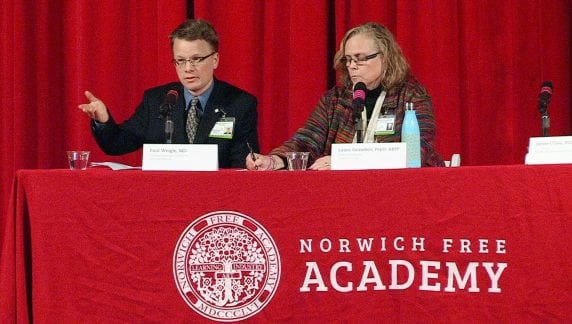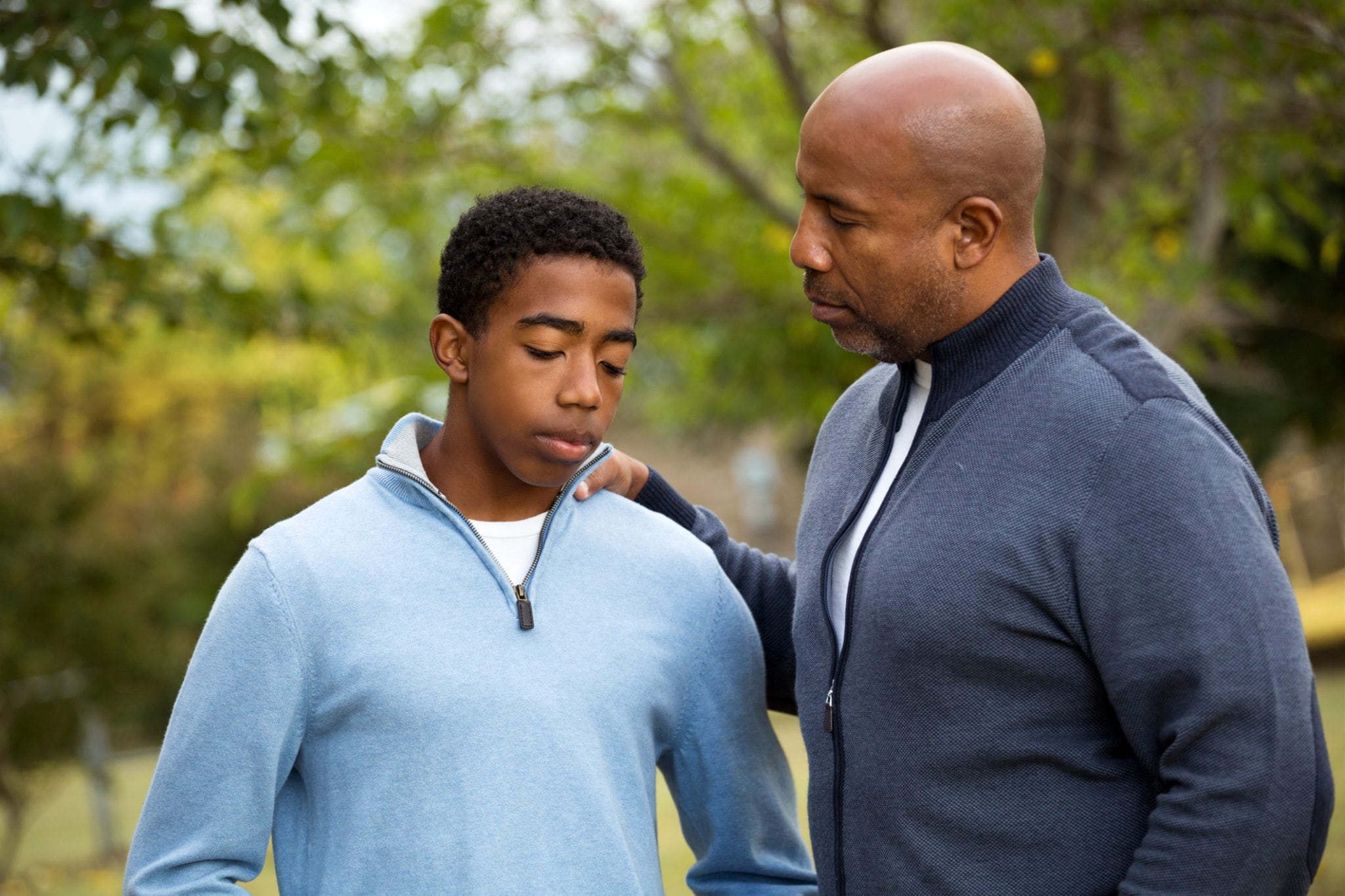That was the overarching message recently when a team of experts from Hartford HealthCare’s Behavioral Health Network (BHN) hosted a public showing of an episode of the Netflix series “13 Reasons Why” in which a teenaged girl commits suicide, leaving behind 13 tapes detailing the way people in her life let her down or hurt her.
One of the most honest moments in the episode, which included the graphic suicide, is when Clay Jensen, the series protagonist and reason number 11, says, “The way we treat each other and look out for each other – it has to get better somehow.”
“It’s important to have conversations because this is what our kids are watching,” noted Jim O’Dea, PhD, MBA, vice president of operations at the BHN who moderated the viewing and panel discussion at Norwich Free Academy. “If we engage with them, we can really have an impact on our children’s lives.”
“13 Reasons” instantly became binge-worthy among American teenagers when it aired earlier this year, but Paul Weigle, MD, associate medical director at Natchaug Hospital and a child and adolescent psychiatrist, said that’s actually positive.
“It has brought up for discussion topics we find difficult to talk about,” he said. “Five thousand teens a year commit suicide – what can you do if a friend talks about it?”
He suggested:
- Taking all threats seriously.
- Letting people know, even if that means the friend who threatened suicide gets mad.
- Let the person know you care by listening.
“Your purpose is to get them to talk to someone who can help keep them safe, not to fix their problem,” Weigle explained, adding, “but, do not rush to a conclusion or judgment.

Laura Saunders, PsyD, ABPP, a clinical psychologist at the Institute of Living, said “13 Reasons” is helping people understand depression more and working to erase the stigma surrounding all mental health issues.
“Being depressed is not your fault. Being assaulted is not your fault,” she said, referring to an incidents of sexual assault that also happened in the series.
It’s important, she continued, for friends and family to ask direct questions without worrying that they will “plant” the idea of suicide.
“It doesn’t put the idea in a person’s head, it’s already there,” she said. “It might actually be a relief so they know they can talk about it. Ask how they’re doing. Then ask again. Eventually, they’ll know you’re a resource for them.”
When starting that conversation, Weigle suggested being prepared to hear that the person feels hopeless or beyond help. Pressing on to find the person help is important because treatment is extremely effective.
Conversations can be informal and spontaneous or planned as part of a nightly dinner ritual, something Saunders said is rare today.
“There is research into the value of the family dinner,” she said. “It lowers drug use and suicide rates. We are losing our basic social skills with the increased use of technology, so it’s even more important to gather the family as often as possible.”
There is also a direct relationship between depression and the time teens spend online, which has doubled since 2000, Weigle added. Screen time pulls teens away from activities they enjoy, socializing and sleep, which all impact their frame of mind.
For more information, visit https://hhcbehavioralhealth.org/.


